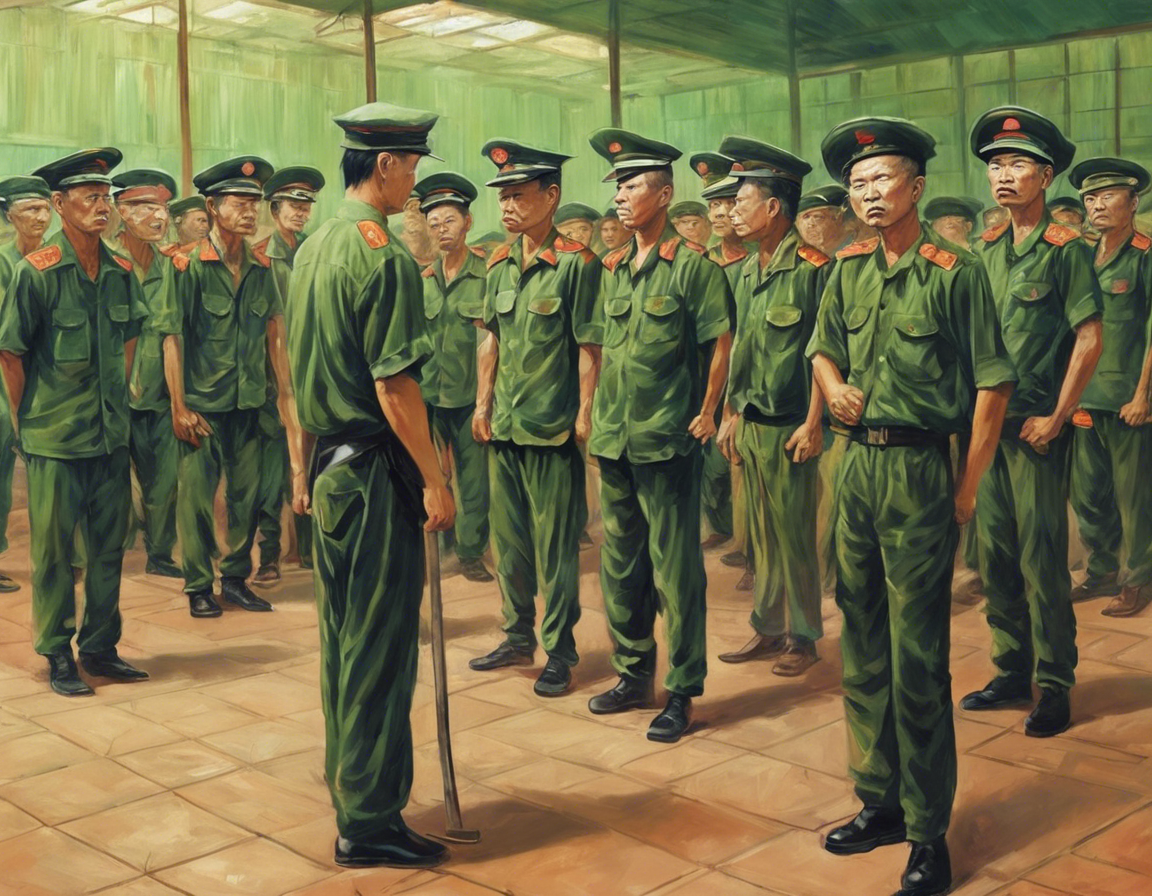Introduction
Capital punishment, also known as the death penalty, has been a topic of much debate and controversy worldwide. In Vietnam, this practice has been a part of the country’s legal system for many years, drawing mixed reactions from the public and international communities. This article aims to delve into the controversy surrounding Vietnamese capital punishment, exploring its history, current status, arguments for and against, and potential future implications.
History of Capital Punishment in Vietnam
Vietnam has a long history of utilizing capital punishment as a form of legal sanction. Traditionally, the Vietnamese legal system featured various forms of execution, including beheading, hanging, and shooting. During the French colonial period and later the Communist era, the death penalty remained prevalent for crimes such as treason, espionage, and drug trafficking.
Current Status of Capital Punishment in Vietnam
In modern-day Vietnam, capital punishment continues to be a legal sanction for a variety of offenses, including drug-related crimes, corruption, and violent acts. The country’s legal system allows for the use of lethal injection and firing squad as methods of execution. Despite calls for abolishment from human rights organizations, the Vietnamese government maintains its stance on the death penalty as a deterrent for serious crimes.
Arguments For Capital Punishment in Vietnam
Supporters of capital punishment in Vietnam argue that it serves as a necessary deterrent against heinous crimes. They believe that the threat of execution can help maintain law and order, preventing individuals from committing serious offenses. Additionally, proponents argue that justice for victims and their families can be achieved through the ultimate punishment for offenders.
Arguments Against Capital Punishment in Vietnam
On the other hand, opponents of capital punishment in Vietnam raise several concerns regarding its effectiveness and ethical implications. They argue that execution does not necessarily deter crime and may lead to wrongful convictions and miscarriages of justice. Moreover, critics highlight the violation of human rights inherent in taking a life as a form of punishment.
International Reactions and Human Rights Concerns
The practice of capital punishment in Vietnam has garnered attention from the international community, with human rights organizations denouncing the use of execution as a violation of fundamental rights. Countries and global bodies have urged Vietnam to reconsider its stance on the death penalty and embrace alternative forms of punishment that align with international standards.
Future Implications of Capital Punishment in Vietnam
As Vietnam continues to navigate the controversy surrounding capital punishment, the future of the death penalty in the country remains uncertain. Calls for reform and abolishment persist, prompting discussions on possible legal and social changes that could impact the use of execution in Vietnamese society in the years to come.
Frequently Asked Questions (FAQs)
- Is capital punishment still legal in Vietnam?
-
Yes, capital punishment remains a legal sanction in Vietnam for certain crimes.
-
What methods of execution are used in Vietnam?
-
Lethal injection and firing squad are the primary methods of execution in Vietnam.
-
What are the main arguments for capital punishment in Vietnam?
-
Supporters argue that capital punishment serves as a deterrent against serious crimes and delivers justice for victims.
-
What are the main arguments against capital punishment in Vietnam?
-
Opponents raise concerns about the effectiveness of execution as a deterrent and highlight ethical issues related to taking a life as punishment.
-
How does the international community view capital punishment in Vietnam?
-
Human rights organizations and countries have criticized Vietnam for the use of capital punishment as a violation of human rights.
-
Are there any efforts to abolish capital punishment in Vietnam?
-
Yes, there are ongoing calls for reform and abolishment of capital punishment in Vietnam.
-
What crimes are punishable by death in Vietnam?
-
Offenses such as drug trafficking, terrorism, and corruption are among the crimes that can lead to capital punishment in Vietnam.
-
Do public opinions in Vietnam support or oppose capital punishment?
-
Public opinions on capital punishment in Vietnam vary, with some supporting it as a necessary deterrent while others oppose it on ethical and human rights grounds.
-
How does the Vietnamese government justify the use of capital punishment?
-
The Vietnamese government cites deterrence and justice for victims as key justifications for the use of capital punishment.
-
Are there any efforts to reform the capital punishment system in Vietnam?
- Discussions on reform and possible changes to the capital punishment system in Vietnam are ongoing, reflecting debates on its efficacy and ethical implications.
Conclusion
The controversy of capital punishment in Vietnam reflects broader debates on justice, ethics, and human rights within society. As calls for reform and abolishment continue, Vietnam faces critical decisions on the future of execution and its role in the legal system. The impact of these decisions will likely shape the landscape of punishment and justice in Vietnamese society for years to come.



